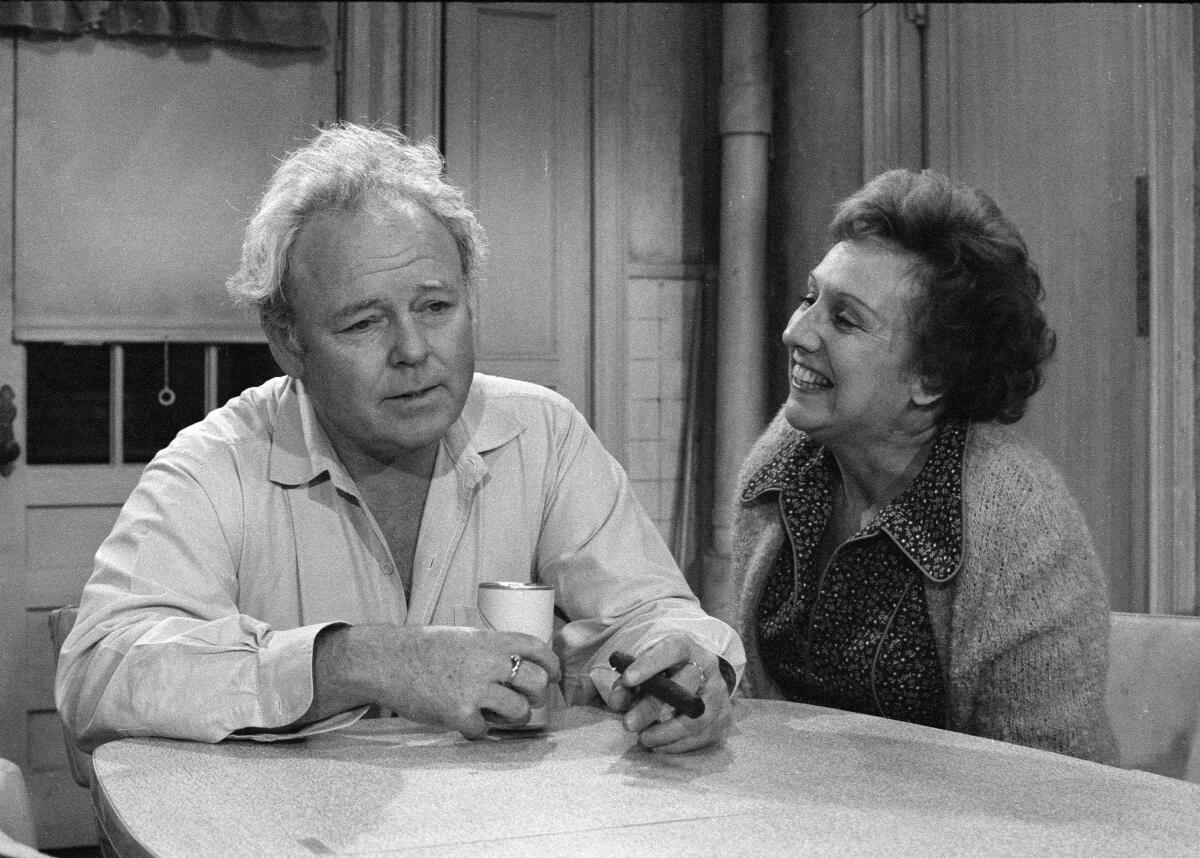
Introduction:
If there’s one character in TV history who has stood the test of time in both infamy and importance, it’s Archie Bunker. As the star of All in the Family, Archie wasn’t just the patriarch of a dysfunctional family – he was the embodiment of an era, a reflection of the social and political climate of 1970s America. Played to perfection by Carroll O’Connor, Archie became a household name and remains one of the most memorable and controversial characters in television history. But what is it that makes Archie so unforgettable? Is it his unfiltered views or his flawed, yet somehow lovable nature? Let’s take a deep dive into why Archie Bunker continues to be one of TV’s greatest and most complex characters.
Character Breakdown:
At first glance, Archie Bunker might seem like just another grumpy, middle-aged man with outdated views. He’s a blue-collar worker, a World War II veteran, and a father of two. But what sets him apart is his unabashed, unapologetic attitude toward race, politics, and gender. Archie’s views were often offensive and discriminatory, but he wasn’t portrayed as a villain. Instead, All in the Family crafted a character who was both frustrating and strangely relatable, a man who was stuck between the old ways of thinking and the changing world around him.
Archie was the quintessential working-class man of his time – a product of his upbringing and environment. His views on race were often bigoted, and his opinions on women and progressive politics were equally outdated. Yet, despite his flaws, there was something endearing about him. Carroll O’Connor’s performance as Archie brought depth to the character, making him more than just a stereotype. Archie was a man who had lived through hardships, and his bitterness and prejudice were as much a result of those struggles as they were a reflection of his ignorance.
Archie’s Humor:
Part of what made Archie such a memorable character was his sense of humor. Archie’s jokes were often offensive, but they weren’t just meant to make people laugh at others’ expense. In many ways, his humor was a form of satire – a way of holding a mirror up to society and forcing people to confront their biases. Though the show often made us laugh at Archie’s expense, it also made us think about the bigger picture. His comments about race, gender, and politics weren’t just for shock value; they were meant to challenge the status quo and to make viewers question their own assumptions.
By making Archie the voice of the “everyman,” All in the Family used humor to shine a light on the ugliness of bigotry. His misguided comments about women, African Americans, and immigrants were never presented as jokes without consequence. Instead, they were framed within a larger conversation about prejudice and change, which made them more powerful and socially relevant. Archie’s humor wasn’t just about the laugh; it was about discomfort, reflection, and ultimately, understanding.
Impact on Society:
When All in the Family first aired in 1971, it was a shock to many viewers. Archie’s views were controversial and, at times, offensive. But the brilliance of the show was in how it tackled these issues head-on. Archie wasn’t presented as a villain but as a deeply flawed human being. By making him a central figure in the show, All in the Family forced viewers to confront uncomfortable truths about themselves and their society. It was a bold statement, one that challenged the complacency of the time and pushed the boundaries of what was considered acceptable on television.
Archie’s bigotry was a reflection of a larger societal issue. He represented a generation that was struggling to adapt to the rapidly changing world around them. The civil rights movement, the feminist movement, and the counterculture were all challenging the status quo, and Archie’s resistance to these changes mirrored the tensions of the era. His ignorance was both comical and tragic, and his character allowed viewers to reflect on their own biases without ever feeling like they were being preached to.
Love-Hate Relationship with Fans:
One of the most fascinating aspects of Archie Bunker’s character is the complex relationship viewers had with him. Fans often found themselves both laughing at him and, at times, feeling sympathy for him. Despite his prejudice and ignorance, Archie was a man who loved his family. His bond with Edith, his complicated relationship with Mike, and his paternal love for Gloria added layers to his character. He wasn’t just a one-dimensional bigot; he was a father, a husband, and a man who, deep down, wanted the best for his family.
This complexity made Archie a character audiences couldn’t ignore. They laughed at his outdated views, but they also recognized that Archie’s flaws were a reflection of his time and circumstances. In a sense, Archie’s character was a commentary on the changing tides of American society – and his struggle to keep up with these changes made him all the more relatable to viewers. By the end of the series, many fans found themselves rooting for Archie, even though they disagreed with much of what he stood for.
Conclusion:
Archie Bunker is a character who continues to be both celebrated and criticized, and that’s what makes him so unforgettable. His bigotry was a reflection of the time in which he lived, but his complexity as a character transcended the stereotypes of the day. Carroll O’Connor’s portrayal of Archie gave him depth and humanity, making him one of the most memorable characters in TV history. Whether you loved him or hated him, there’s no denying that Archie Bunker remains one of the most iconic and controversial figures ever to grace the small screen.
